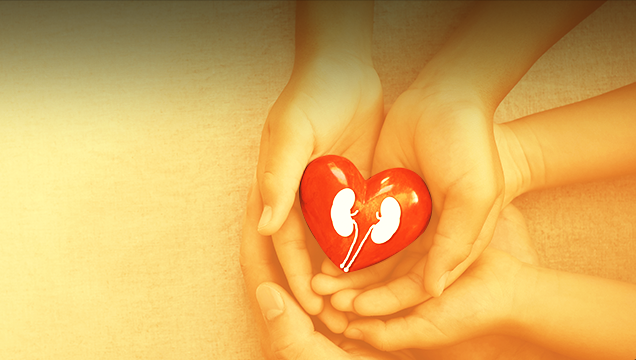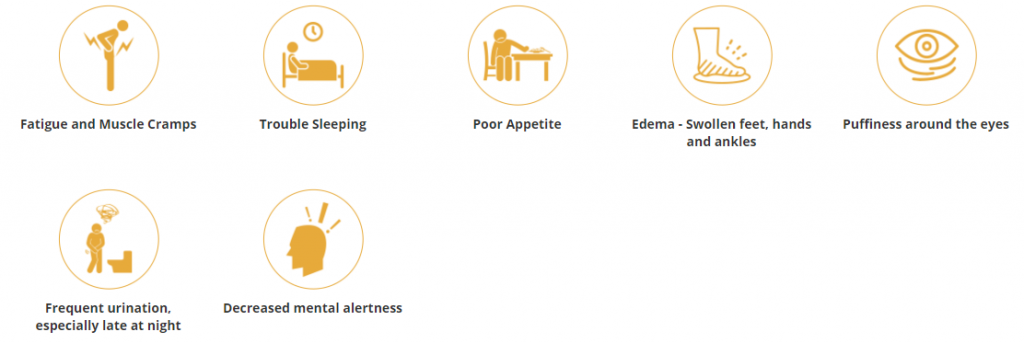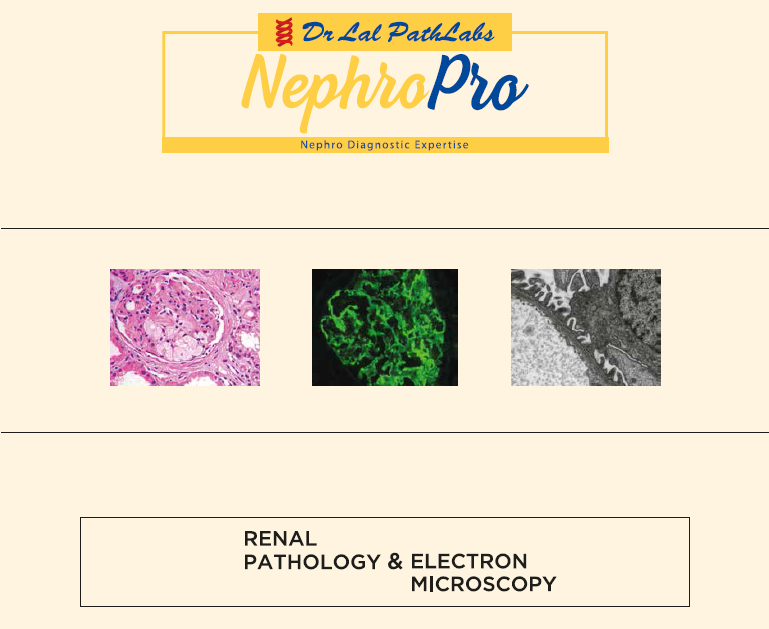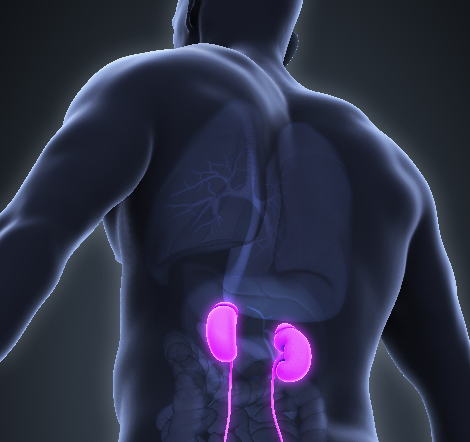Kidney Disease Treatment and its Types
 Overview
Overview
Did you know that 17 in every 100 Indians suffer from some form of kidney disease?
In India, 1.36 Lakhs adults die due to chronic kidney disease, which is more than AIDS.
The kidneys are a pair of bean-shaped organs located at the bottom of the rib cage and are mainly responsible for:
- Filtering waste products, excess water, and other impurities out of the blood.
- Regulating pH, salt, and potassium levels in the body.
- Regulating blood pressure and the production of red blood cells.
- Activating a form of vitamin D that enhances calcium absorption.
Polycystic kidney disease
Polycystic kidney disease is a genetic disorder that causes numerous cysts (small sacs of fluid) to grow in the kidneys. These cysts can interfere with kidney function and cause kidney failure.
Urinary tract infections
Urinary tract infections (UTIs) are bacterial infections of any part of the urinary system. Infections in the bladder and urethra are the most common. If left untreated, these infections can spread to the kidneys and cause kidney failure.
Symptoms
The following symptoms are early warning signs of developing kidney disease:

- Fatigue due to a buildup of toxins and impurities in the blood.
- Trouble sleeping, due to decreased kidney function resulting in buildup of toxins in the blood.
- Poor appetite due to a buildup of toxins and impurities in the blood resulting from reduced kidney function
- Muscle cramping, due to Electrolyte imbalances resulting from impaired kidney function.
- Edema – Swollen feet, hands and ankles, due to decreased kidney function leading to sodium retention.
- Puffiness around the eyes due to the kidneys leaking a large amount of protein in the urine.
- Dry/Scaly skin, when the kidneys are no longer able to keep the right balance of minerals and nutrients in the blood.
- Frequent urination, especially late at night
- Decreased mental alertness due to a buildup of toxins and impurities in the blood.
Severe symptoms may include:
Types of Kidney Disease
Kidney disease occurs when the kidneys cannot function properly.

Chronic Kidney Disease
Chronic kidney disease is a condition characterized by a gradual loss of kidney function over time and is mainly caused by diabetes, high blood pressure and other disorders.
High blood pressure is dangerous for the kidneys because it can increase the pressure on the glomeruli. Glomeruli are the tiny blood vessels in the kidneys where blood is cleaned. Over time, the increased pressure damages these vessels and kidney functions begin to decline.
Diabetes is also a major cause of chronic kidney disease. The increased level of sugar in the blood damages the blood vessels in the kidneys over time.
Early detection and treatment can often keep chronic kidney disease from getting worse. When kidney disease progresses, it may eventually lead to kidney failure, which requires dialysis or a kidney transplant to maintain life.
Kidney Stones
Kidney stones occur when minerals and other substances in the blood crystallize in the kidneys, forming solid masses (stones). Kidney stones usually come out of the body during urination.
Glomerulonephritis
Glomerulonephritis is an inflammation of the glomeruli. Glomeruli are extremely small structures inside the kidneys that filter the blood. Glomerulonephritis can be caused by infections, drugs, or congenital abnormalities.
- Nausea, Vomiting due to a buildup of toxins and impurities in the blood.
- Loss of appetite due to a buildup of toxins and impurities in the blood resulting from reduced kidney function
- Changes in urine output
- Fluid retention is common in kidney disease and manifests with swelling.
- Anemia (a decrease in red blood cells), can cause weakness and fatigue.
- Decreased sex drive, is very common in patients with kidney disease.
- Sudden rise in potassium levels
Are you at risk for kidney disease?
The major risk factors for kidney disease are:
- Diabetes, the most common cause and can damage the blood vessels in the kidneys.
- Hypertension, the second most common cause, can cause damage to the blood vessels and filters in the kidney,
- Age, more common among people over 60
- Family history of kidney disease
- Atherosclerosis can reduce blood flow and cause scarring of the kidney.
- Smoking is harmful for the kidneys and can cause kidney disease to progress.
- Obesity increases the risk of developing major risk factors for chronic kidney disease, like diabetes and hypertension.
How can kidney disease be prevented?
Following measures can be taken to prevent kidney disease:
- Drink plenty of water: It helps to flush out infection-causing bacteria
- Control blood sugar: The best way to prevent or slow kidney damage
- Control blood pressure: High blood pressure can increase damage to the kidneys.
- Reduce salt intake: Too much salt can be harmful for people with kidney disease
- Quit smoking: Smoking is harmful for the kidneys and can cause kidney disease to progress.
What are the treatments for Kidney disease?
The doctor will diagnose the cause of Kidney disease for e.g. Diabetes, High blood pressure. and may accordingly prescribe
- Medications to treat the cause such as high BP, high cholesterol.
- Special Diet that’s lower in sodium, protein, potassium, and phosphate.
- Lifestyle changes for better health.
- Dialysis may be needed if kidneys don’t work well anymore.
- Kidney Transplant may be recommended If kidney disease is advanced.














